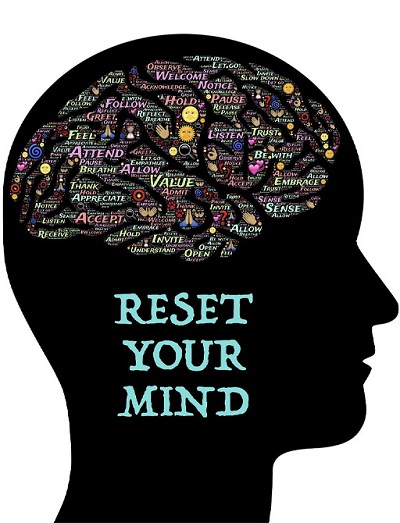3.2 Mindfulness
Finding time for yourself as part of self-compassion activities might include time where you can recalibrate your mind; this can be achieved through practising mindfulness. Mindfulness can be defined as: ‘… a non-judgmental, receptive mind state in which one observes thoughts and feelings as they are, without trying to suppress or deny them’ (Neff, 2023). Mindfulness is also considered to be a way of moving away from your automatic pilot to consciously make changes for more positive behaviours (Vseteckova et al., 2021). Mindfulness approaches, sometimes formalised into structured programmes, are widely available and can be used as universal mental training tools which may be helpful to maintain positive levels of wellbeing. Targeted mindfulness programmes which focus on supporting specific mental health conditions are often delivered by the health sector in the UK and aim to manage and prevent recurrent depression (Crane, 2017).
To better understand mindfulness and its potential, and to perhaps resolve concerns that you may have, it might be good to address five common myths:
- Mindfulness is not the same as meditation, as there are many ways of being mindful that do not involve formal meditation. You can be mindful outdoors among nature, or in any of your daily activities – even the basics of doing the washing up or making a meal.
- While there are mindfulness practices or features within every major religion there are also lots of ways to practice mindfulness without being a ‘religious person’.
- Mindfulness is not the same as relaxation, as you can be mindful in any situation, even those that are really challenging. This makes it a useful approach for people who experience stress in their busy lifestyles. Its practice does not need to be time-consuming either; even just a few minutes of mindfulness exercises every day should help you feel more settled or better able to be in the moment.
- Mindfulness is not about controlling your thoughts or being happy all the time – mindfulness is a way to experience all thoughts and experiences, both positive and negative, so it can be helpful even in complex situations.
- People who have experienced traumatic events can benefit from mindfulness, provided it is tailored to meet their needs, feels safe and is provided using support from a mental health professional.
Activity _unit9.4.2 Activity 5 Practising mindfulness
Read more about mindfulness from the NHS [Tip: hold Ctrl and click a link to open it in a new tab. (Hide tip)] . Then watch the following video from the NHS (2022a). Identify opportunities where you could practise mindfulness, for example when you are feeling stressed.
(If you are already experienced in mindfulness re-visit the techniques which are familiar to you in the light of what is shown in the video.)

Transcript
Find an opportunity to practise mindfulness in a mildly stressful situation, then reflect on it and write your reflections in the journal you have been compiling this week. Did the mindfulness practice help? If so, how? And if not, why, and what other strategies could you apply to reduce that particular stress?
Discussion
Mindfulness can be a successful practice to help you slow down and take notice of what isn’t working for your mental health and wellbeing. It can take some time to familiarise yourself with mindfulness practice so do give yourself permission to pay more attention to your thoughts and feelings. This may necessitate perseverance, but be reassured, there are many different styles of mindfulness techniques so find one which is a good fit for your personality, circumstances and wellbeing.

